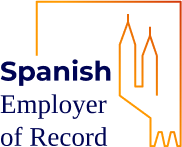28 February 2025
How to pay remote employees in Spain: Legal and practical insights
Remote work is on the rise across Europe, and Spain is no exception. Known for its skilled workforce, Spain has become a prime destination for businesses looking to tap into a remote talent pool. However, while hiring remote employees in Spain can be an exciting step forward, the process of managing payroll—especially if you don’t have a legal entity in the country—can quickly become a challenge.
From understanding Spain’s detailed employment regulations to meeting tax and social security requirements, businesses must understand what’s legally required and how to implement compliant payroll solutions. Without proper attention to Spanish labour laws and payroll compliance, companies risk fines, legal disputes, and reputational damage.
Understanding remote work regulations in Spain
Spain’s Remote Work Law (Ley de Trabajo a Distancia) outlines specific employer obligations for remote employees. Employers must ensure that their remote workers have equal rights and benefits to on-site employees, including proper contracts, equipment provisions, and reimbursement for certain expenses. It also establishes that remote arrangements must be voluntary, clearly documented, and mutually agreed upon.
Another critical distinction is between hiring employees and contracting freelancers. Under Spanish law, employees are entitled to social security benefits, paid leave, and other protections freelancers don’t receive.
Misclassifying a remote employee as a contractor can lead to serious legal and financial penalties. Ensuring that remote staff are classified and contracted correctly is the first step to compliance.
Payroll obligations for remote employees in Spain
When employers hire remote workers in Spain, adhering to strict payroll guidelines is essential. Key responsibilities include:
- Withholding income tax: Employers must deduct personal income tax (IRPF) directly from employees’ wages and submit these withholdings to Spanish tax authorities.
- Contributing to social security: Employers are responsible for social security contributions, covering both the employee and company portions. These contributions support critical benefits like healthcare, unemployment, pensions, and other protections.
- Filing and reporting requirements: Employers need to report payroll data regularly to Spanish tax authorities, ensuring all filings meet established deadlines. Delays or errors in reporting can lead to penalties and compliance issues.
- Payslip transparency: Companies must issue detailed payslips that outline wages, deductions, and contributions. Additionally, all payments must comply with Spanish labour laws, ensuring accuracy and legality.
By following these guidelines, employers not only remain compliant but also build trust with their remote employees by ensuring fair and transparent payroll practices.
Payment methods and salary structures for remote employees
Paying remote employees involves more than just transferring salaries. Employers need to consider compliance with Spanish banking regulations, currency exchange rates, and how salaries are structured. For example, using Spanish bank accounts can simplify payroll, but foreign companies might also consider international transfers if they don’t have local banking arrangements.
Some companies turn to payroll software or automation solutions to simplify the process. However, it’s crucial to select tools that meet Spain’s payroll compliance standards. Setting salary benchmarks is equally important.
Spanish labour law mandates minimum wage requirements and often includes additional salary considerations, such as holiday pay or 13th-month bonuses. Employers must ensure that their salary structures meet these legal obligations.
Tax implications for businesses paying remote workers in Spain
One of the most complex aspects of paying remote employees in Spain is understanding the tax implications. If a company hires Spanish-based remote workers, it may need to register with local tax authorities and comply with Spanish tax laws. This includes submitting income tax withholdings and social security contributions through the appropriate channels.
Double taxation agreements between Spain and other countries can help mitigate tax burdens, but determining the tax residency status of a remote employee requires careful evaluation.
For example, if a remote employee spends most of the year working from Spain, they may become a Spanish tax resident. In that case, employers must ensure all income is properly declared and taxed in Spain.
Companies should also be cautious of inadvertently creating a “permanent establishment” in Spain. The business could face additional corporate tax obligations if authorities determine that a company’s remote operations constitute a taxable presence. Understanding these risks and implementing measures to avoid them—such as working through compliant third-party solutions—is critical.
How an Employer of Record can simplify payroll for remote employees in Spain
An Employer of Record (EOR) provides an efficient and compliant way to manage payroll for remote workers for businesses without a legal entity in Spain. An EOR acts as the legal employer, handling employment contracts, payroll taxes, and social security contributions on behalf of the hiring company. This allows businesses to focus on growth and productivity rather than navigating complex Spanish labour laws.
With an EOR, businesses can ensure that their remote employees receive compliant payslips, timely payments, and the benefits required under Spanish law. The EOR also keeps track of regulatory changes, ensuring that payroll processes remain compliant as laws evolve. For companies that lack in-house payroll expertise or local knowledge, using an EOR can prevent costly mistakes, reduce administrative burdens, and streamline payroll operations.
For example, James, a UK tech entrepreneur, wanted to expand his remote team in Spain by opening a small office in Barcelona. However, he faced difficulties with Spain’s complex payroll, tax, and employment regulations.
By working with a Spanish Employer of Record (EOR), James was able to ensure full compliance, handle local payroll and social security contributions, and issue legal contracts for his team. This allowed him to focus on growing his business while the EOR managed the administrative and legal details.
Having remote employees is easy
Paying remote employees in Spain comes with a range of legal and practical challenges. Employers must understand and comply with Spain’s labour laws, social security obligations, and tax requirements. Companies can avoid common pitfalls and ensure smooth operations by setting up compliant payroll processes, choosing appropriate payment methods, and keeping track of local regulations.
Contact us to start working with an Employer of Record in Spain, it can be a smart solution for those looking to simplify compliance and streamline payroll. An EOR not only ensures that remote employees are paid correctly and on time, but also provides the legal foundation for companies to operate confidently in the Spanish market.



